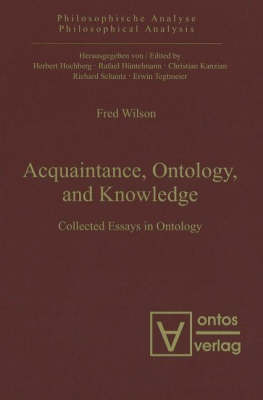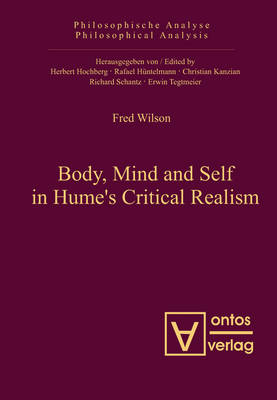Philosophische Analyse / Philosophical Analysis
2 primary works
Book 19
These essays bring together forty years of work in ontology. Intentionality, negation, universals, bare particulars, tropes, general facts, relations, the myth of the 'myth of the given', are among the topics covered. Bergmann, Quine, Sellars, Russell, Wittgenstein, Hume, Bradley, Hochberg, Dummett, Frege, Plato, are among the philosophers discussed. The essays criticize non-Humean notions of cause; they criticize the notion that besides simple atomic facts there are also negative facts and general facts. They defend a realism of properties as universals, against nominalism; bare particulars; a (qualified) realism with regard to logical form; a Russellian account of relations; and an account of minds and intentionality, which is opposed to materialism, but is also a form of (methodological) behaviourism. In general, the ontology is one of logical atomism and empiricist throughout, rooted in a Principle of Acquaintance.
Book 22
This essay proposes that Hume's non-substantialist bundle account of minds is basically correct. The concept of a person is not a metaphysical notion but a forensic one, that of a being who enters into the moral and normative relations of civil society. A person is a bundle but it is also a structured bundle. Hume's metaphysics of relations is argued must be replaced by a more adequate one such as that of Russell, but beyond that Hume's account is essentially correct. In particular it is argued that it is one's character that constitutes one's identity; and that sympathy and the passions of pride and humility are central in forming and maintaining one's character and one's identity as a person. But also central is one's body: a person is an embodied consciousness: the notion that one's body is essential to one's identity is defended at length. Various concepts of mind and consciousness are examined - for example, neutral monism and intentionality - and also the concept of privacy and our inferences to other minds.

